April 24 stands as one of history’s most eventful days, witnessing the rise and fall of empires, groundbreaking discoveries, and moments that shaped our modern world across centuries of human achievement.
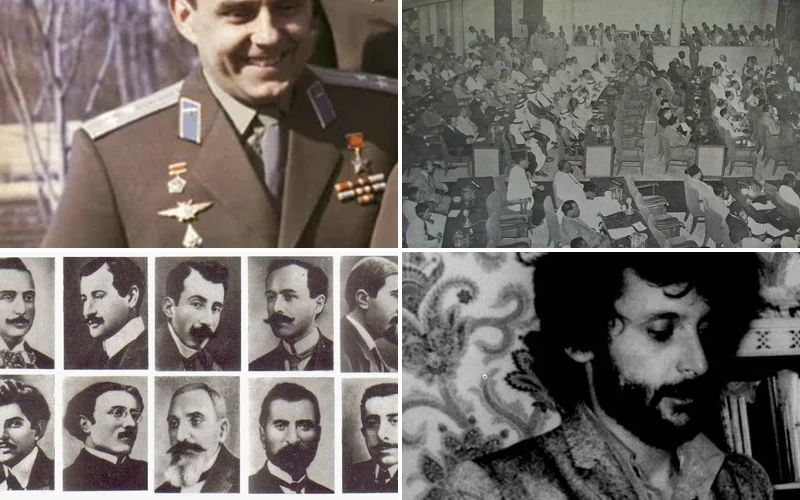
Politics and Government Events on April 24
1916 – Easter Rising: Irish Rebellion Begins in Dublin
Irish rebels led by Patrick Pearse and James Connolly launched a dramatic uprising in Dublin against British rule. The revolutionaries boldly proclaimed an Irish Republic from the steps of the General Post Office.
The rebellion would fundamentally alter the course of Irish history despite its initial military failure. British response to the uprising galvanized Irish nationalist sentiment and accelerated the independence movement.
1922 – Thorvald Stauning Becomes Danish Premier
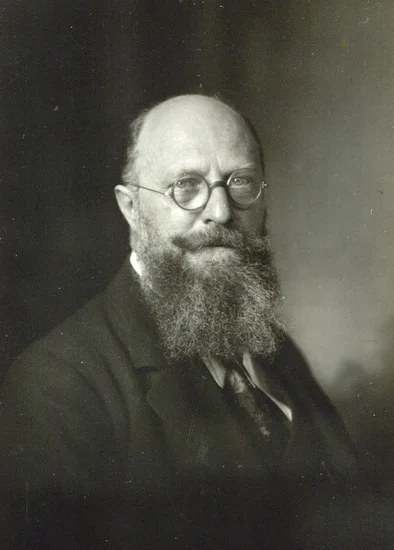
Social Democrat Thorvald Stauning assumed power as Denmark’s prime minister, beginning his first transformative term. His leadership would modernize Danish society and establish progressive social policies.
Stauning’s tenure marked a pivotal shift toward the welfare state model that would define Scandinavian politics. His pragmatic approach to governance earned him unprecedented popularity among Danish voters.
1955 – Bandung Conference Concludes with Historic Declaration
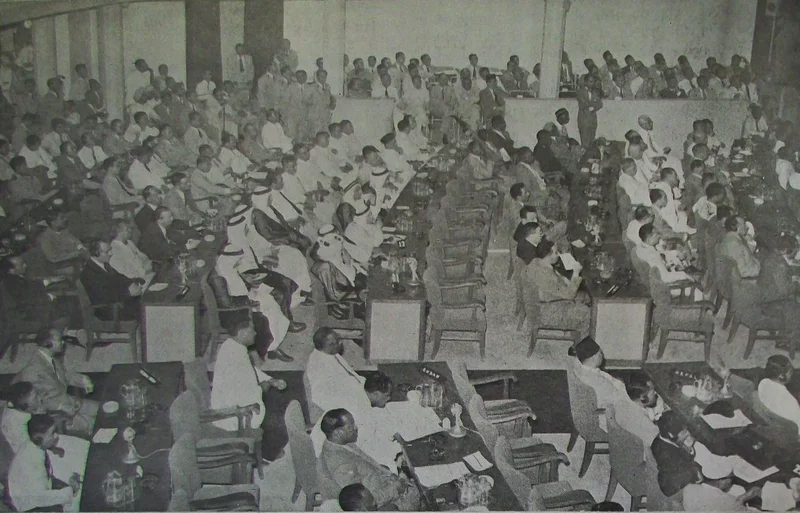
Twenty-nine non-aligned nations of Asia and Africa concluded their groundbreaking meeting with strong condemnations of colonialism and racism. The conference established the foundation for the Non-Aligned Movement during the Cold War.
Representatives from across the developing world united to chart an independent course between American and Soviet spheres of influence. This gathering fundamentally reshaped global diplomacy and Third World politics.
1970 – The Gambia Becomes Republic
The Gambia transformed from a British colony into a republic within the Commonwealth of Nations. Dawda Jawara became the country’s first president, leading the peaceful transition to full independence.
This constitutional change reflected the broader decolonization movement sweeping across Africa in the 1960s and 1970s. The Gambia’s democratic transition would serve as a model for other emerging African nations.
2004 – United States Lifts Libya Sanctions
The United States removed economic sanctions imposed on Libya eighteen years earlier as reward for cooperation in eliminating weapons of mass destruction. This diplomatic breakthrough marked Libya’s return to international legitimacy.
The sanctions relief represented a significant victory for Libyan leader Muammar Gaddafi’s efforts to normalize relations with the West. The decision opened new opportunities for American businesses and diplomatic engagement.
2005 – Cardinal Ratzinger Inaugurated as Pope Benedict XVI
Cardinal Joseph Ratzinger was formally inaugurated as the 265th Pope of the Catholic Church, taking the name Benedict XVI. His election marked a continuation of conservative theological leadership for the world’s largest Christian denomination.
The German-born pontiff brought extensive theological expertise and decades of Vatican experience to his papal duties. His inauguration ceremony drew hundreds of thousands of faithful to St. Peter’s Square.
Military and Naval History on April 24
1916 – Shackleton’s Desperate Antarctic Rescue Mission
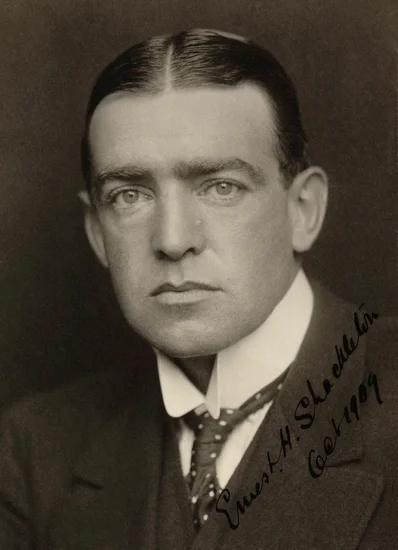
Ernest Shackleton and five companions launched a lifeboat from desolate Elephant Island to organize rescue for their stranded crew. The Imperial Trans-Antarctic Expedition members faced impossible odds in the Southern Ocean’s brutal conditions.
Their 800-mile journey to South Georgia Island would become one of history’s greatest survival stories. Shackleton’s leadership during this crisis established him as the definitive model of Antarctic exploration courage.
1918 – First Tank-to-Tank Combat in World War I
Three British Mark IV tanks engaged three German A7Vs in history’s first tank-versus-tank battle during the Second Battle of Villers-Bretonneux. This technological milestone marked the evolution of mechanized warfare.
The encounter demonstrated the growing importance of armored vehicles in modern combat. Both sides recognized that tank warfare would fundamentally transform military tactics for future conflicts.
1944 – Special Boat Service Raids Santorini
The British Special Boat Service launched a daring raid against German forces garrisoned on the Greek island of Santorini. This operation exemplified the special forces tactics employed throughout the Mediterranean theater.
The commando assault disrupted German communications and supply lines across the Aegean Sea. Such raids maintained pressure on Axis forces while supporting Greek resistance movements.
1980 – Operation Eagle Claw Ends in Tragedy
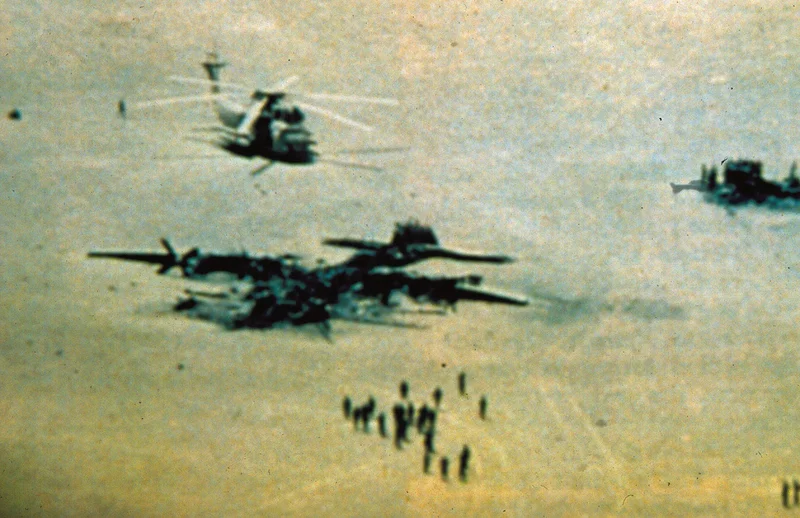
Eight American servicemen died during Operation Eagle Claw, the failed attempt to rescue hostages from the Iranian Embassy in Tehran. The mission’s failure dealt a devastating blow to American military prestige.
Mechanical failures and coordination problems doomed the ambitious rescue operation from its inception. The tragedy highlighted the extreme difficulties of conducting complex military operations in hostile territory.
Science and Discovery Milestones on April 24
1914 – Franck-Hertz Experiment Presented
The groundbreaking Franck-Hertz experiment was presented to the German Physical Society, providing crucial evidence for quantum mechanics. This Nobel Prize-winning research demonstrated the quantized nature of atomic energy levels.
The experiment confirmed Bohr’s atomic model and established fundamental principles of quantum theory. James Franck and Gustav Hertz’s work revolutionized scientific understanding of atomic structure and behavior.
1970 – China Launches First Satellite

China successfully launched Dong Fang Hong I, becoming the fifth nation to place an object into orbit using its own booster rocket. This achievement marked China’s entry into the exclusive club of spacefaring nations.
The satellite broadcast revolutionary songs and demonstrated China’s growing technological capabilities during the Cultural Revolution. This milestone established China as a major player in space exploration and technology.
1990 – Hubble Space Telescope Launched

The Hubble Space Telescope was launched aboard Space Shuttle Discovery, beginning humanity’s most ambitious astronomical observation program. This revolutionary instrument would transform our understanding of the universe.
Despite initial optical problems, Hubble became the most productive scientific instrument ever built. Its stunning images and discoveries have captivated the public while advancing astrophysics and cosmology.
1990 – Gruinard Island Declared Anthrax-Free
Gruinard Island in Scotland was officially declared free of anthrax disease after 48 years of strict quarantine. The island had been contaminated during World War II biological weapons testing.
Extensive decontamination efforts finally restored the island to safety for human habitation. This achievement demonstrated the long-term environmental consequences of biological weapons research and testing.
Cultural and Arts Events on April 24
1913 – Woolworth Building Opens in New York

The magnificent Woolworth Building opened its doors as New York City’s newest skyscraper, earning the nickname “Cathedral of Commerce.” This architectural marvel dominated the Manhattan skyline with its neo-Gothic design.
The 57-story building represented the pinnacle of early 20th-century construction technology and urban ambition. Its opening ceremony attracted thousands of spectators who marveled at America’s architectural achievements.
1963 – Princess Alexandra Marries at Westminster Abbey
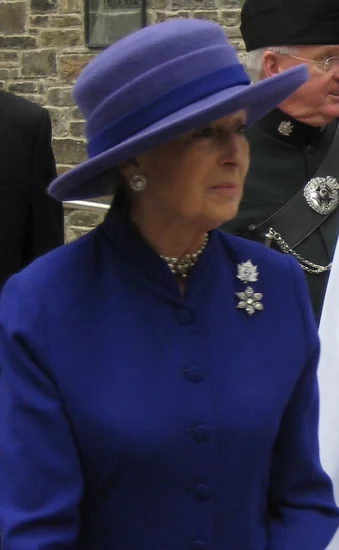
Princess Alexandra of Kent married Angus Ogilvy in a spectacular ceremony at Westminster Abbey in London. The royal wedding captivated British society and demonstrated the monarchy’s enduring cultural significance.
Thousands of spectators lined the streets to witness the procession and celebration. The event showcased British royal traditions while modernizing the monarchy’s public image for television audiences.
1993 – IRA Bomb Devastates London’s Bishopsgate
A massive IRA bomb exploded in London’s Bishopsgate financial district, causing extensive damage and highlighting the ongoing Northern Ireland conflict. The blast demonstrated the IRA’s ability to strike at Britain’s economic heart.
The attack prompted enhanced security measures throughout London’s financial centers. The bombing intensified political pressure for a peaceful resolution to the decades-long Northern Ireland troubles.
Religious and Social Events on April 24
1915 – Armenian Genocide Begins

The arrest of 250 Armenian intellectuals and community leaders in Istanbul marked the beginning of the Armenian genocide. This systematic persecution would claim over one million lives during World War I.
The Ottoman Empire’s actions against its Armenian minority represented one of the 20th century’s first genocides. The international community’s limited response established troubling precedents for future atrocities.
1933 – Nazi Germany Targets Jehovah’s Witnesses
Nazi Germany began systematic persecution of Jehovah’s Witnesses by shutting down the Watch Tower Society office in Magdeburg. This action marked the beginning of sustained religious persecution under Hitler’s regime.
The Witnesses’ refusal to salute the Nazi flag or serve in the military made them early targets of state oppression. Their courage in maintaining religious convictions inspired resistance movements throughout Nazi-occupied Europe.
1979 – Blair Peach Dies During London Anti-Nazi Demonstration

New Zealand teacher Blair Peach died after being knocked unconscious during an Anti-Nazi League demonstration in Southall, London. His death during protests against a National Front meeting sparked national outrage.
The incident highlighted tensions between police and anti-racist demonstrators during Britain’s racially charged 1970s. Peach’s death became a rallying point for civil rights activists and police reform advocates.
Business and Economic Events on April 24
1922 – Imperial Wireless Chain Begins Operation
The first segment of the Imperial Wireless Chain commenced operation, providing wireless telegraphy between Leaffield, England, and Cairo, Egypt. This technological breakthrough revolutionized communication across the British Empire.
The wireless network enhanced administrative efficiency and commercial opportunities throughout Britain’s colonial territories. This innovation laid the groundwork for global telecommunications systems that would transform international business.
1926 – Treaty of Berlin Signed
Germany and the Soviet Union signed the Treaty of Berlin, pledging neutrality in the event of attacks by third parties. This diplomatic agreement strengthened economic cooperation between two major European powers.
The treaty facilitated increased trade and technological exchange between Germany and the Soviet Union. These economic ties would prove crucial for both nations’ industrial development during the interwar period.
1996 – Antiterrorism Act Passed in United States
The United States passed the Antiterrorism and Effective Death Penalty Act, significantly expanding federal law enforcement powers. This legislation represented a major shift in American criminal justice policy.
The act streamlined death penalty appeals and enhanced government surveillance capabilities. These measures reflected growing concerns about domestic and international terrorism threats facing American society.
Transportation and Infrastructure on April 24
1957 – Suez Canal Reopens After Crisis
The Suez Canal reopened following the introduction of United Nations Emergency Force peacekeepers to the region. This crucial waterway’s restoration normalized international shipping and trade routes.
The canal’s closure during the Suez Crisis had disrupted global commerce and highlighted the strategic importance of Middle Eastern shipping lanes. Its reopening demonstrated the United Nations’ potential for resolving international disputes.
1994 – Aircraft Survives Water Landing in Sydney
A Douglas DC-3 successfully ditched in Botany Bay after takeoff from Sydney Airport, with all 25 people aboard surviving the water landing. This incident demonstrated the importance of aviation safety procedures and crew training.
The successful emergency landing showcased the durability of classic aircraft designs and the effectiveness of modern safety protocols. Investigators praised the crew’s quick thinking and passenger cooperation during the crisis.
2011 – WikiLeaks Publishes Guantanamo Bay Files
WikiLeaks began publishing classified documents from the Guantanamo Bay detention facility, revealing previously secret information about detainees and interrogation methods. This massive leak sparked international controversy about American detention policies.
The classified files exposed the challenges of determining detainee guilt and the complexities of modern counterterrorism efforts. The revelations intensified debates about government transparency and national security priorities.
Sports and Recreation on April 24
1932 – Kinder Scout Mass Trespass
Benny Rothman led the historic mass trespass of Kinder Scout, challenging restrictions on public access to Britain’s countryside. This act of civil disobedience led to substantial legal reforms protecting hiking rights.
The protest demonstrated growing demand for recreational access to natural areas previously reserved for wealthy landowners. The trespass movement ultimately secured public footpaths and national parks for all British citizens.
1967 – First Space Mission Fatality
Cosmonaut Vladimir Komarov died when Soyuz 1’s parachute failed to deploy properly during reentry, making him the first human to die during a space mission. This tragedy highlighted the extreme dangers of space exploration.
Komarov’s death prompted comprehensive safety reviews of both Soviet and American space programs. His sacrifice contributed to improved spacecraft design and emergency procedures for future missions.
2013 – Building Collapse in Bangladesh

A building collapse near Dhaka, Bangladesh, killed 1,134 people and injured approximately 2,500 others in one of the world’s worst industrial disasters. The tragedy exposed dangerous working conditions in global garment manufacturing.
The Rana Plaza collapse sparked international campaigns for improved factory safety standards and worker protections. This disaster transformed global supply chain management and corporate responsibility practices.
Notable Births on April 24
1904 – Willem de Kooning Born
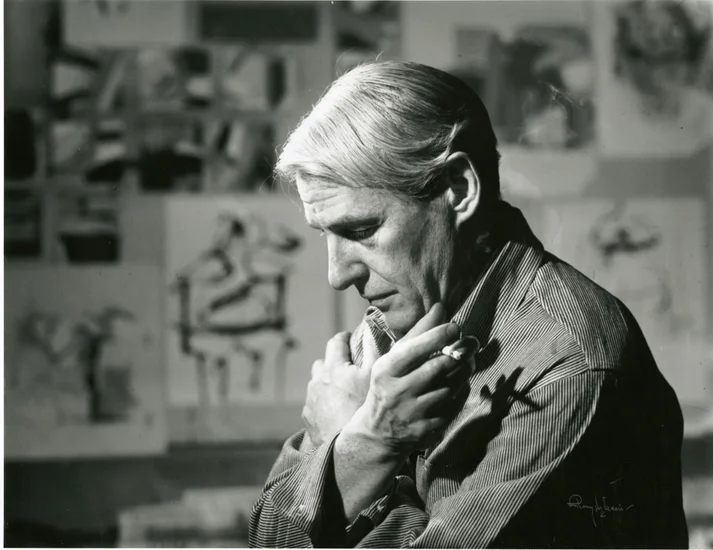
Dutch-American painter Willem de Kooning was born in Rotterdam, Netherlands, beginning a life that would revolutionize modern art. His early artistic training in the Netherlands shaped his distinctive abstract expressionist style.
De Kooning would become one of the most influential painters of the 20th century, known for his dynamic brushwork and innovative approaches to figuration. His “Woman” series challenged traditional representations of the female form.
1938 – Shirley MacLaine Born

American actress Shirley MacLaine was born in Richmond, Virginia, launching a career that would span decades of film, television, and stage performances. Her early dance training prepared her for Broadway success.
MacLaine would win an Academy Award and become known for her outspoken personality and spiritual beliefs. Her versatility in both dramatic and comedic roles made her one of Hollywood’s most enduring stars.
1946 – Barbra Streisand Born

Barbra Streisand was born in Brooklyn, New York, beginning a legendary career in music, film, and theater. Her distinctive voice and dramatic talent would make her one of entertainment’s most successful performers.
Streisand would become the only artist to achieve number-one albums in six consecutive decades. Her directing career broke barriers for women in Hollywood while her activism influenced American political discourse.
1952 – Jean Paul Gaultier Born

French fashion designer Jean Paul Gaultier was born in Arcueil, France, destined to become one of the most innovative and provocative designers in fashion history. His unconventional approach would challenge traditional fashion boundaries.
Gaultier would revolutionize haute couture with his avant-garde designs and theatrical presentations. His iconic cone bra and sailor-inspired collections influenced fashion trends for decades.
1973 – Sachin Tendulkar Born

Cricket legend Sachin Tendulkar was born in Mumbai, India, beginning a career that would make him one of the greatest batsmen in cricket history. His childhood dedication to the sport showed early promise.
Tendulkar would become the first cricketer to score 100 international centuries and earn the nickname “Master Blaster.” His achievements inspired millions of cricket fans worldwide and elevated the sport’s popularity.
1982 – Kelly Clarkson Born

American singer Kelly Clarkson was born in Fort Worth, Texas, launching a journey that would make her the first winner of American Idol. Her powerful voice and relatable personality captured national attention.
Clarkson would become one of the most successful recording artists of the 21st century with multiple Grammy Awards. Her transition to television hosting demonstrated her versatility and continued popularity.
1987 – Jan Vertonghen Born

Belgian international footballer Jan Vertonghen was born in Sint-Niklaas, Belgium, beginning a career that would make him one of Europe’s premier defenders. His youth development showed exceptional promise.
Vertonghen would captain the Belgian national team and play for top European clubs including Ajax and Tottenham. His leadership and defensive skills helped Belgium achieve unprecedented international success.
Notable Deaths on April 24
1942 – Lucy Maud Montgomery Dies
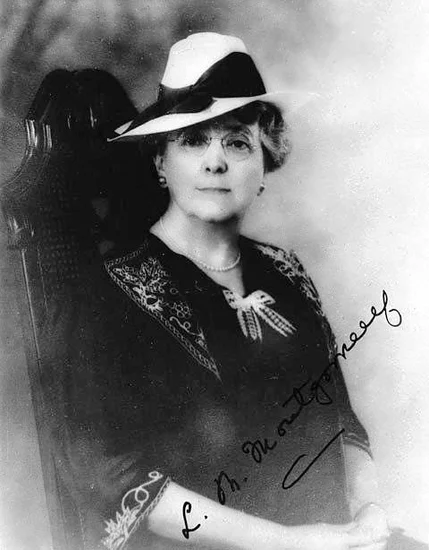
Canadian author Lucy Maud Montgomery died in Toronto, ending a literary career that created one of the world’s most beloved fictional characters. Her Anne of Green Gables series had captivated readers globally.
Montgomery’s vivid descriptions of Prince Edward Island life preserved Canadian rural culture for future generations. Her writing influenced countless authors and established Canadian literature on the international stage.
1947 – Willa Cather Dies

American novelist Willa Cather died in New York City, concluding a distinguished literary career that captured the American frontier experience. Her novels portrayed the struggles and triumphs of pioneer life.
Cather’s works including “My Ántonia” and “O Pioneers!” became classics of American literature. Her sensitive portrayal of immigrant experiences helped define the American literary canon.
1967 – Vladimir Komarov Dies

Soviet cosmonaut Vladimir Komarov died during the Soyuz 1 mission when parachute systems failed during reentry. His death marked the first fatality during an active space mission.
Komarov’s sacrifice contributed to improved safety protocols for future space missions. His courage and dedication to space exploration inspired subsequent generations of astronauts and cosmonauts.
1974 – Bud Abbott Dies
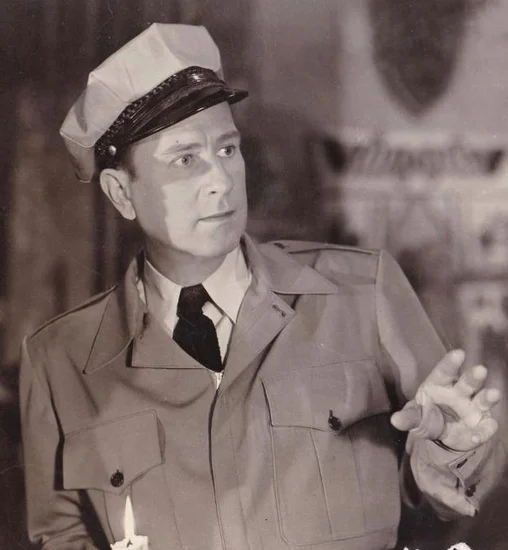
American comedian Bud Abbott died in Woodland Hills, California, ending one of comedy’s most successful partnerships. His straight-man role in Abbott and Costello routines became legendary.
Abbott’s precise timing and deadpan delivery perfectly complemented Lou Costello’s energetic performances. Their “Who’s on First?” routine remains one of the most famous comedy sketches in entertainment history.
1986 – Wallis Simpson Dies

American socialite Wallis Simpson died in Paris, ending a life that had changed the course of British royal history. Her relationship with King Edward VIII led to his abdication crisis.
Simpson’s influence on the British monarchy highlighted tensions between tradition and modernity. Her story reflected changing attitudes toward divorce and marriage in 20th-century society.
2011 – Sathya Sai Baba Dies

Indian spiritual leader Sathya Sai Baba died in Puttaparthi, concluding a life devoted to spiritual teaching and humanitarian work. His followers numbered in the millions worldwide.
Sai Baba’s educational and medical institutions served countless people across India and beyond. His philosophy of love and service influenced spiritual movements throughout the world.
Holidays and Observances on April 24
Armenian Genocide Remembrance Day

Armenia and France observe Armenian Genocide Remembrance Day to commemorate the victims of the 1915 genocide. This solemn day honors the memory of over one million Armenians who perished.
The observance serves as a reminder of the importance of preventing genocide and protecting vulnerable populations. Educational programs and memorial services maintain historical awareness of this tragedy.
Democracy Day in Nepal

Nepal celebrates Democracy Day to commemorate the restoration of democratic governance and the end of autocratic rule. This national holiday reflects the country’s commitment to democratic principles.
The celebration includes cultural programs and political speeches highlighting democratic achievements. Citizens participate in events that reinforce the importance of democratic participation and civic engagement.
World Day for Laboratory Animals

International observance of World Day for Laboratory Animals raises awareness about animal welfare in scientific research. This day promotes ethical treatment of animals used in medical and scientific studies.
The observance encourages development of alternative research methods that reduce animal testing. Scientific communities worldwide discuss balancing research needs with animal welfare concerns.
